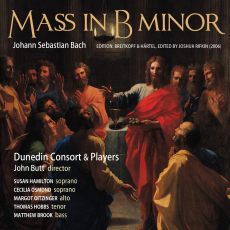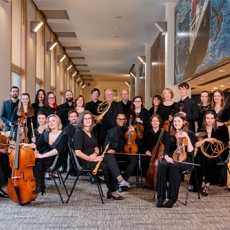Bach Mass in B Minor - Dunedin Consort - Audiophile Audition
This is the first complete recording of the Mass to be based on Rifkin's latest thoughts on the subject. While he still maintains the one-to-a-part doctrine, the present forces use five additional ripienists as well, which does give the performance some added heft when needed. Even so, a choir with a max of ten singers does not, to my mind, do justice to the large-scale conception of this work. Bach's masterpiece is really a pastiche in four different parts from four different time periods, collected for some unknown reason for a presentation unknown.
But he did this for a reason, and it is foolish to think of this as some sort of haphazard or willy-nilly assemblage for just another Sunday service. Everything about his work, really a rewriting of many previous pieces, cries out for justification as a major effort designed to show off something to someone, and history has given its judgment that this quilt is far greater than the sum of its parts, and Bach's final 1748-50 version is essentially a rewrite of the earlier 1733 Missa that formed the basis for this work. As to the Rifkin doctrine-I have made my feelings known about this all over this site, and I still refuse to believe those who would assign to Bach the unequivocal status as a chamber musician only. Would we do the same for Handel, a one-to-a-part Messiah? But to me the real proof is in the way this thing sounds-with even a small orchestra of 7 strings, 2 flutes, 3 oboes, 2 bassoons, horn, 3 trumpets, timpani, and organ, all going at full steam in certain passages, the voices barely hold their own, and even in this recording, designed specifically to accommodate such an ensemble, the results are still sometimes iffy. I repeat my maxim-I can think of no composer in the history of music who did not salivate over the idea of larger forces in his or her music, and that includes Handel, Mozart, Haydn-and Bach.
But credit must be given when it is due, and this is a terrific recording, well-sung and expertly conducted. The ripienists make it worthwhile in my opinion-I am not sure I could take a 5-singer chorus in this monumental music. But the love and enthusiasm they generate is catching, while the solo work is effortlessly fluid and beautifully rendered. The surround sound, on top of it all, is nicely managed, and the tempos and sense of joyous abandon-just listen to the Osanna-make for an illuminating experience.
So while this will not replace such standards...there is much to recommend here, and no one purchasing will be disappointed.

